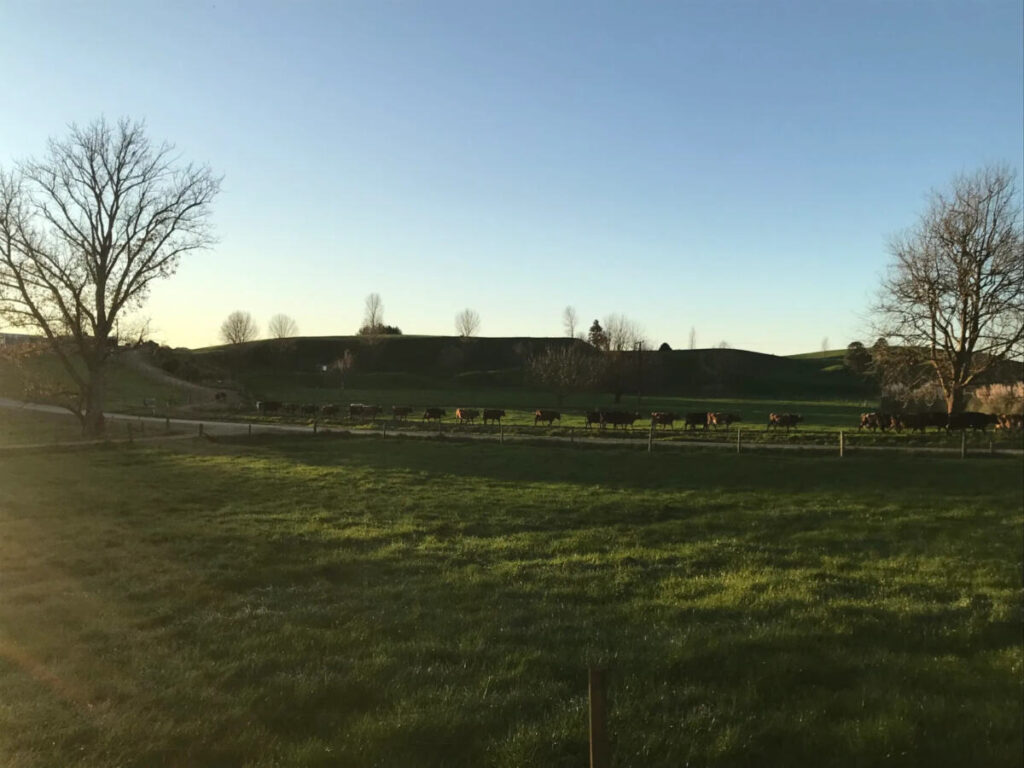One in 100-year shock to Young People
Student loan debt, climate crisis worries, unaffordable houses and rentals disappearing – Being a young person was hard enough but then Covid-19 turned up, shutdown the world, crashed the world economy and killed more than a million. Is it a shit time to be a young person? Riley Kennedy went out and found two young people from different walks of life to find out if the pandemic finally crushed whatever is left for young people.

Chapter 1
Student loan debt, climate crisis worries, unaffordable houses and rentals disappearing – Being a young person was hard enough but then Covid-19 turned up, shutdown the world, crashed the world economy and killed more than a million. Is it a shit time to be a young person? Riley Kennedy went out and found two young people from different walks of life to find out if the pandemic finally crushed whatever is left for young people.
When will we return to some kind of Covid-19 free normality?
Can we ever do that, or will we have to get used to that annoying expression, a “new normal”?
New Zealand is pursuing a strategy of “elimination” to stop the virus in the community – this means whenever it appears – Lockdown.
It has been proven that lockdown works to stamp it out but how long can it work for?
Next year, will we be still be using lockdown as our main strategy?
The WHO’s Dr David Naborro makes the point that a lock down is justified only “to buy you time to reorganise, regroup, rebalance your resources, protect your health workers but, by and large we’d rather not do it.”
At what point do we have to learn with the virus and get on with it?
Lockdown’s, borders closed among other things, what impact is this having on our young people?
It’s fair to say 2020 hasn’t been a great year to be a young person.
For those young people moved into university halls for the year in February – back home with their parents by mid-March for 3 or 4 months.
For those young people, planning on an OE – borders closed to overseas travelers in early March and a managed isolation facility set up in April.
According to Statistics NZ, out of the nearly 2000 cases of the virus New Zealand has had – 441 cases have come from the 20-29 age bracket, well in front of the 30-39 age bracket with 323 cases.
There was a stark warning from the Ministry of Health that Young People are the “Silent Super Spreaders.”
The WHO’s Western Regional director Takeshi Kasai said during a media conference in August that in a global context people in their “20’s, 30’s and 40’s are increasingly driving the spread.”
He noted that because young people often aren’t as symptomatic or are asymptomatic, they are unaware they are infected.
As well as the silent super spreaders – How are young people fearing in the economic downturn?
Brad Olsen, a senior economist at Infometrics, told RNZ’s The Panel that young people were bearing the brunt of the economic downturn.
He said that employment and job numbers for people over 30 have bounced back but for people in their twenties, “It’s a very tight job market.”
“For our youth, this economic downturn is really hard,” he said.
After all that – It is a bad time to be a young person?

On the other hand, at the other end of the spectrum, Levi Stewart is 18 and works as a herd manager at Collingwood Dairies in Northern King Country. Levi grew up in a rural background, he studies several papers through PrimaryITO specializing in milk production and pasture management. He goal is to progress through the ranks from contract milker, shear milker to farm owner. At the last election voted National.
Primary industries sector main purpose is to feed people but at the moment it is the only sector holding the New Zealand economy and workforce.
Over a 48 year period, agriculture’s share of the national economy has gradually shrunk. But during the Covid-19 crisis, the industry sector proved its resilience, after being classified as an essential service.
Agriculture, along with horticulture, showed it can still be relied on to attract the important foreign earnings. It is often described as the backbone of the economy, the agricultural sector reacted quickly and stepped up to the mark.
Levi said it is reassuring working in a sector that has a good future.


“People need to eat and drink milk so my job isn’t going anywhere soon.”
Levi, who farms in Southern Waikato, was classed as an essential service and carried on working during the lockdowns.
He said it was a weird time.
“Because I live and work at the same place, it was weird because it was like nothing had changed,” Stewart said.
“But if I had to travel into town for food and anything else, the place was dead.”
“A lot of people I know weren’t so lucky than I was, they had to lockdown in time.”
Levi said there were some disadvantages.
“You know I did have to live in a house by myself for the best part of 2 months.”
“I’d only just moved into my new job and I was stuck there with no one for two months.”
He said he was confident of the future.
“With a strong future in the agriculture sector, I’m feeling pretty good about what is to come.”
Chapter Two

Paora Manuel is 21 and a Diploma of Journalism student at WINTEC in Hamilton. Born in Whakatane, Paora studied at University of Waikato and did a course at radio school in Tauranga, at the last election voted Labour. His dream job is working in the press gallery, alongside
The communications industry has a wide spectrum, from public relations to business communications to journalism.
The communications industry has been one of the hardest hit from the economic shock caused by Covid-19.
Most noted is the closure of Bauer Media, which saw many of New Zealand’s magazines cease publishing in April.
Some magazines, such as The Listener, Women’s Weekly have made a return under new ownership but running skeletons staff to keep costs to a minimum.
Bauer’s Chief Executive Brendon Hill said at the time that Covid-19 had put magazine publishing in an untenable position to continue publishing.
The closure saw 300 people, many of whom are journalists, editors, photographers, out of a job.
As well as Bauer, NZME publisher of the NZ Herald and other regional master heads and owner of radio stations such as Newstalk ZB and The Hits, laid off 15% of its staff also many were journalists and it also shut one of its flagship radio stations, Radio Sport.
With Journalists and editors made redundant, many turned to communications for employment.
Former deputy of the Listener, Joanne Black, who was chopped by Bauer’s closure went back to her job as communications manager at Kiwirail.
Paora said journalism is a dream job for him and he recognises it is a tough time at the moment.
“I absolutely love journalism but it would be good if there were a few more jobs around,“ he said.
“Covid has had a real impact on the survival of journalism but the importance of it will never go away.“
He said no matter how hard it is to be a young person at the moment, it won’t stop his drive to be in the newsroom.
“This year has been tough for journalists, covering one of the biggest stories of our lifetime and in return we’ve been laid off or had pay cuts.
“I think there is a bit more certainty now Stuff is New Zealand owned and Mediaworks had a good buy out.
“No matter what happens, I’ll still be ready to seek the truth.”




